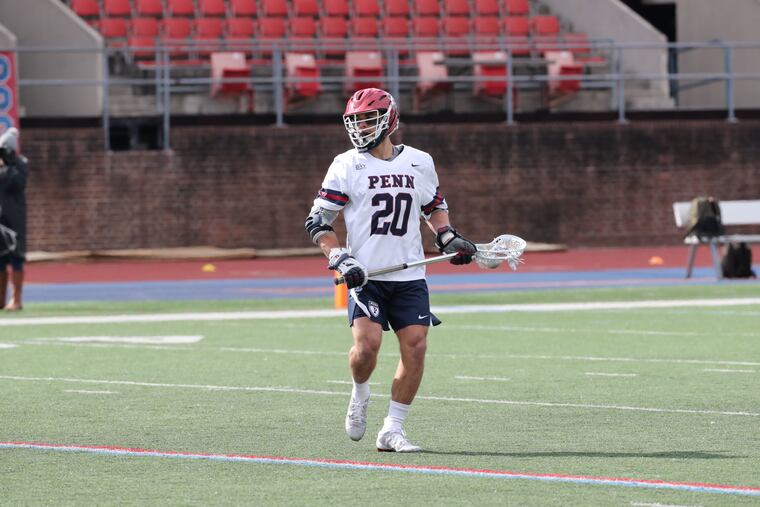Ivy League won’t let spring sports athletes graduate and use extra year of eligibility
The league's spring-sports athletes may have to drop classes this spring to retain eligibility, or transfer.

The Ivy League announced Thursday that — in contrast to the rest of NCAA Division I — the league will keep its present rules in place and not allow spring-sport athletes an extra year of eligibility after they graduate.
That’s been a principle in place for all Ivy athletes, and the reason, for instance, that basketball players including Penn’s Ryan Betley are looking to transfer to play their fourth season elsewhere as a graduate transfer.
A season cancelled by a global coronavirus pandemic, in other words, isn’t changing life within the Ancient Eight, which includes Penn locally.
The Ivy League put out the following statement Thursday: “After a number of discussions surrounding the current circumstances, the Ivy League has decided the League's existing eligibility policies will remain in place, including its longstanding practice that athletic opportunities are for undergraduates.”
Interestingly, the decision does leave an out for Ivy seniors or even underclassmen — they could drop classes this spring, keeping them from graduating on time, which would keep them as undergraduates for an extra year, and give them the extra year of eligibility. The Ivy League made this announcement Thursday in time to give its students time to make their own assessments.
The Ivy League, by its own account, had supported the NCAA proposal to provide relief for all student-athletes whose spring seasons were canceled. It turned out, they just didn’t mean for Ivy League students.
Penn athletic director Grace Calhoun wore multiple hats through all this, since Calhoun also is the chair of the NCAA Division I council, which voted to give the extra year of eligibility to all spring athletes.
“I think [Ivy] schools looked at it differently philosophically,’’ Calhoun said Thursday over the phone after the league’s decision was announced. “Penn was in the camp in believing that in times like this, having local decision-making and some more local flexibility to help with these issues for our student-athletes — that was our thinking. We had hoped that that mindset would prevail.”
Six of eight Ivy League presidents would have had to agree. Calhoun said she didn’t know what the vote was, but that athletic directors were “pretty evenly split. … As good members of the league, we accept the decision.”
Spring-sport athletes at Penn had been surveyed, Calhoun said, and about 20 had been interested in staying on to play next spring, while the rest were looking to move on, many with job offers already accepted. With this decision, “probably 10 or a dozen,’’ Calhoun said, might think about still trying to stay on, including a “small handful” who might look at taking some time off, dropping current spring classes to remain undergraduates.
This decision will also impact the junior, sophomore, and freshman Penn classes, since they will retain their eligibility not used this spring but can’t use it in a fifth year if they graduate in four.
Students looking to transfer elsewhere and play as graduate students will find an additional hurdle because while other schools have dispensation to add scholarship money to keep five classes together, there may not be more money for transfers. Of course, that may depend on how badly a coach wants a given player, since schools are being given financial flexibility.
Some Penn spring-sports athletes had been hoping for more options than what they’ll now have.
“Another season would be, like, everything," softball pitcher Jennifer Brann had said almost two weeks ago, although she had already accepted a job offer. Thursday, Brann said by text this would have “a big impact on all seniors and the decisions we have to make.”
Lacrosse captain Adam Goldner, another senior, said Thursday he never really foresaw returning as a graduate student as an option, “because the league had never allowed it before.”
Goldner already had accepted a job offer. “I do think it definitely changes the situation for some other guys who were relying on” being able to stay past graduation."
Calhoun noted that some Ivy schools felt moving past undergraduate eligibility “really went against our core principles,” and that “any deviation opened the door going forward” for more permanent changes.